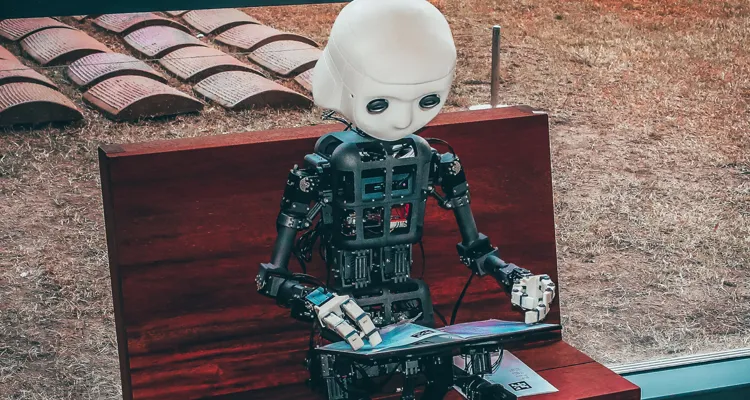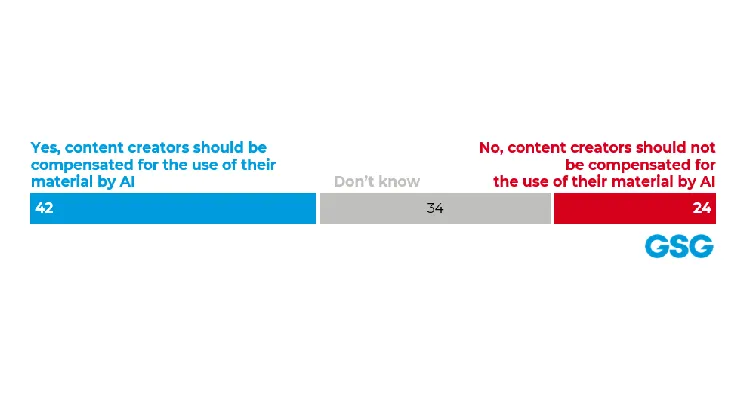Global Strategy Group’s latest independent research reveals that just 42% of Americans polled think artists should be compensated when AI uses their work — a startlingly low number, but one that the Human Artistry Campaign sees as validating.
A new study from Global Strategy Group (GSG) reveals that only 42 percent of Americans polled believe content creators should be compensated when AI uses their work. Additionally, only 12 percent of respondents say they would trust companies that rely on AI more than those that depend on people.
While 42 percent seems surprisingly low, it is a show of validation to the Human Artistry Campaign, an initiative with worldwide support for responsible and transparent technology that maintains human creativity at the center of innovation.
“As AI rapidly evolves and new tools are launched to the public with limited testing or review, we are encouraged that even in the earliest days of this debate, people recognize that human creators should be compensated when their irreplaceable expression and accomplishment are copied and used by these platforms,” says a Human Artistry Campaign coalition spokesperson.
“Human artistry will always be essential in shaping the culture and charting our history. We applaud GSG’s insightful research as a vital contribution to this fast-moving debate and are proud to stand as a united creative community supporting responsible and lawful collaboration and innovation.”
The Human Artistry Campaign debuted at SXSW 2023 to encourage open dialogue and guidance from the united creative community in the AI debate. The growing coalition is built around maintaining seven core principles for keeping human creativity at the center of technological innovation.
GSG’s research shows that Americans seem divided on whether advancements in AI will have an overall positive or negative impact on society. On this, participants seemed more conflicted than whether artists should be compensated for the AI use of their work — 28 percent believe AI advancements will have a negative impact.
By comparison, 24 percent believe it will have an overall positive impact. Similarly, 25 percent think it will have equally positive and negative implications, while 23 percent feel undecided.


